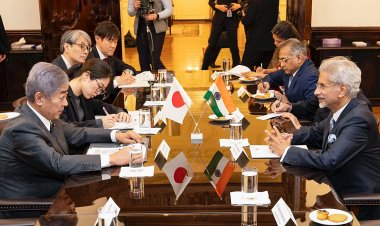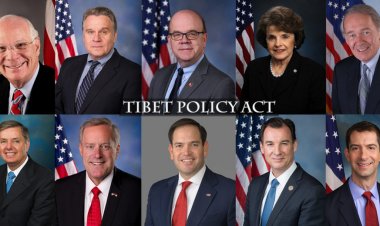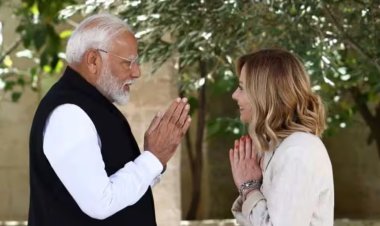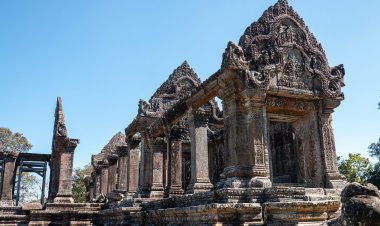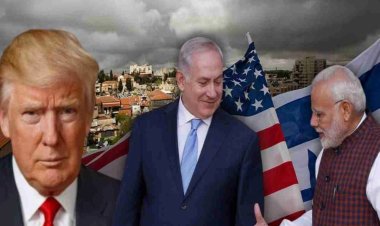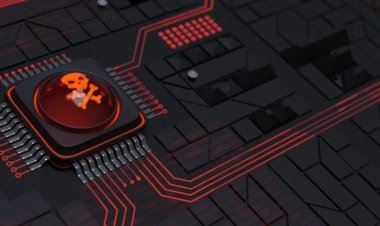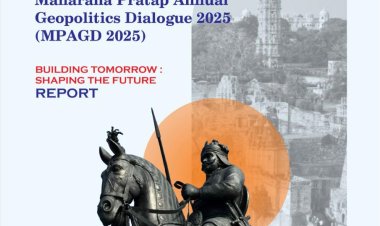Is the Future Saving the Future? : Thailand's Pro-Democracy Protests
A symbol of resistance and solidarity against the dictatorship in a dystopian land that these very children read about while their own country went through a military coup, has now helped them unite in asking for a free and fair nation.
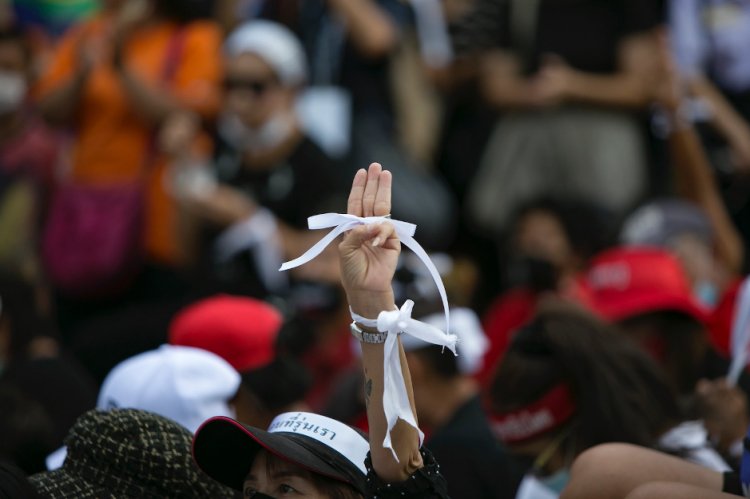
Commentary
By Diya Shilin
The young have always been at the forefront of every pro-democracy protest movement across time and geographical boundaries. From Vietnam to Hong Kong, students have played a crucial role in standing up against anti-democratic forces. The student protestors of Thailand, who satirically call themselves the "Bad Students," have been able to get tens and thousands of people to the streets of Bangkok demanding the resignation of Thailand's Prime Minister General Prayut Chan-Ocha.
To understand this protest's nature, we must explore the Thai monarchy's specificities. Thailand's monarchy, through its lese-majeste (offense against monarch ) laws, have been historically protected from any forms of public criticism. The law is one of the strictest in the world and has been increasingly used since the military coup in 2014. While the United Nations has repeatedly called on Thailand to amend this law, the Thai government has refused to do so, stating the protection of the once widely revered monarchy. The monarch is sacrosanct to Thai society; the god-like associations made to the monarch have ensured that dissenting against the monarch is much more challenging. The UN's High Commissioner for Human Rights says the number of people investigated for lese-majeste had risen to more than double the number investigated in the previous 12 years. People have also been arrested for lese-majeste over online activity, such as merely clicking the "like" button on Facebook posts and deemed offensive.
The reigning monarch, Maha Vajiralongkorn, assumed the throne in 2016 after the death of his father, King Bhumibol Adulyadej. King Adulyadej, at the time of his death, was the world's longest-reigning monarch. His son, King Vajiralongkorn, is popularly known as the 'playboy king' of Thailand. During the pandemic, the King, along with 100 of his consorts, have been lavishly living in a German luxury resort while traveling around in his private Boeing 373. While a leader is expected to portray solidarity with the people during a pandemic, the monarch seems to be less bothered and mocking his people's crisis. At another front, the King seems to be taking the country closer to an absolute monarchy, The junta( defacto military rule of PM Prayut Chan-Ocha), giving him full control of the Crown Property Bureau, which manages the palace's roughly $30 billion worth of assets and the King buying two Army units under his direct control are all signs we cannot ignore. The King's embarrassing and eccentric behavior is in stark opposition to the previous monarch and has had people wondering whether they even need a king.
This was, however, not the tipping point. The protest is a culmination of dissent boiling up since 2014. Thailand has had more military coups in modern history than any other country. Coup attempts rarely happen in absolute democracies or dictatorships. It is in nations with a bit of both that coups are much more prevalent. In 2014, the military coup brought in by Mr. Prayuth Chan-ocha overthrew Yingluck Shinawatra( a proxy of elected PM Thaksin Shinawatra), making Prayut Chan-ocha the prime minister of Thailand; ever since then, the junta has tightened its grip on the public with ever-increasing restrictions and anti-junta activists gone missing.
In 2017, a new Constitution was drafted for Thailand upon the request of King Vajiralongkorn. The constitution further eroded the democratic features by ensuring a permanent place for the military and increasing the royalty's influence over essential policies and procedures. The constitutional framework that appoints a 250-member senate gave an added advantage to the military to prolong its rule. In what was an extremely dubious election procedure of 2019, with the opposition(Pheu Thai Party) calling it rigged, Mr. Chan-ocha continued his prime minister position. This election also saw a new pro-democracy party called the 'Future Forward' that attracted young voters. Hence, the public sentiments towards a democratic Thailand are not new.
All this culminated into its boiling point during the COVID-19 crisis. While the February demonstrations against the dissolution of the 'Future Forward' Party subsided due to lockdown measures, the protestors re-emerged in July with two major pro-democracy protests taking place near Bangkok's democracy monument. Online protests as a novel means of dissent also emerged during these times. The youth has been uncomfortable with the monarchy's spending and with the sacrosanctity of the monarch. While their protests began with targeting Mr. Chan-ocha, it has now included the monarchy too.
On October 14th, PM Chan-Ocha, declared a state of emergency, banning public gatherings and censoring the media, after protestors disrupted a royal motorcade carrying Queen Suthida. The emergency decree has now been lifted; the protestors had given Chan-ocha three days to resign, a request that is yet to be entertained. Pro-democracy demonstrations in Thailand intensified when protestors were confronted by riot police and were sprayed with water cannons on November 8th, as they tried to approach Bangkok's Grand Palace in an attempt to deliver letters about their political grievances.
What is unique and interesting about the Thai pro-democracy protests is that young people lead it, in various symbolic ways, they have chosen to express their dissent. A clear sign of the West's ideological hegemony was evident when thousands of students raised their three fingers in protest, a sign borrowed from the famous trilogy of 'Hunger Games.' It clearly illustrates that the soft power western media holds is immense. A symbol of resistance and solidarity against the dictatorship in a dystopian land that these very children read about while their own country went through a military coup has now helped them unite in asking for a free and fair nation. Today, they also use it to identify suspected police forces who are undercover. Another famous parallel the protestors have drawn is that of Harry Potter, with King Vajiralongkorn being Voldemort or 'he who must not be named' after the ban on the monarch's public scrutiny through the lese-majeste laws.
What do the protestors want?
Panusaya Sithijirawattanakul, a 21-year-old student, read out a document of demands to the government, which would go on to make history. The demands of the students include stepping down of the Prime Minister, the dismissal of the current government, new and fair elections, and the drafting of a new constitution to replace the 2017 Charter set by and for the military. Another crucial demand by the youth is the restructuring of the monarchy that has by far been untouchable. They are asking for a separation of the King's assets from the Crown Property Bureau, to cut the palace's share in the national budget, a ban on the King from expressing his political views, and safeguards to prevent him from endorsing future juntas
We do not know if Prayuth Chan-Ocha will resign, or if the constitution will be rewritten once again, or if the King will step down and give up on his efforts to dismantle democratic structures slowly. However, what we do know is that Thailand portrays a new age of pro-democratic revolution, one where young people have taken charge, leaving us a little ray of hope for a brighter, freer, and fairer future.
Only time will tell if the odds will stand in their favor.
Diya Shilin is a Research Assistant with Usanas Foundation
Disclaimer: This paper is the author’s individual scholastic contribution and does not necessarily reflect the organisation’s viewpoint.

